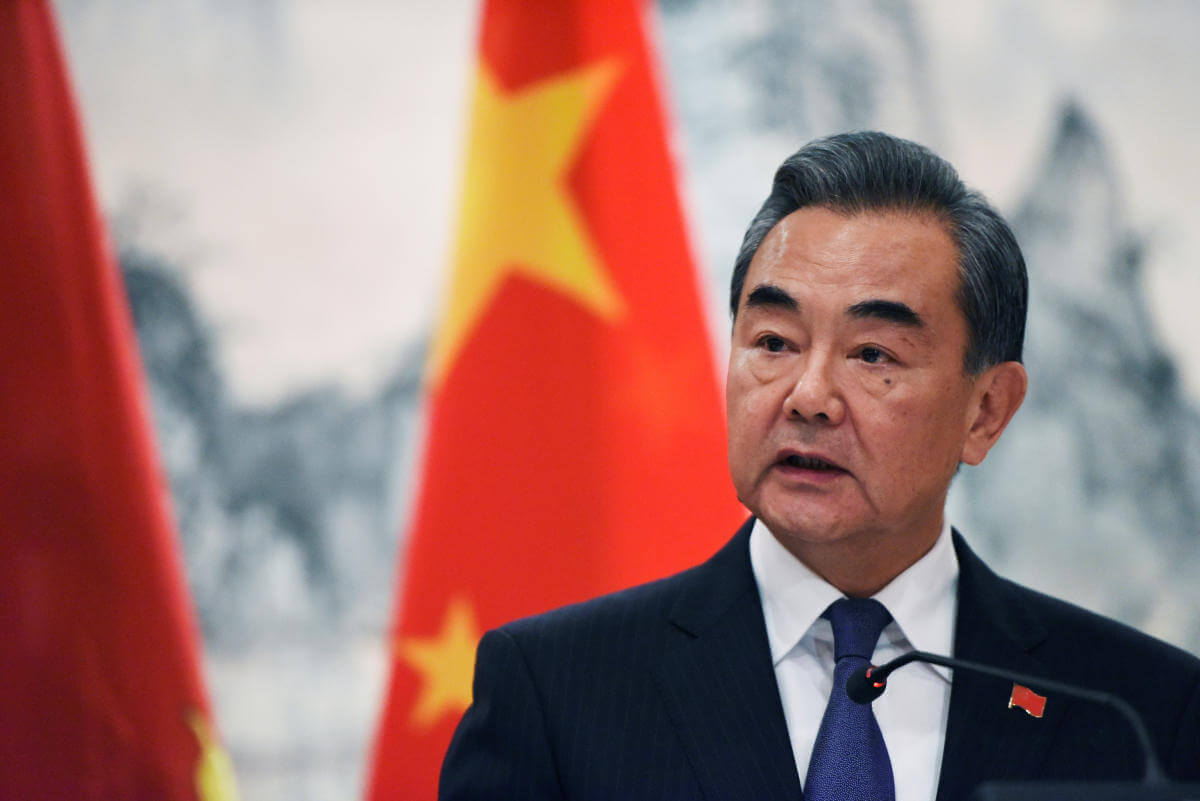Chinese Foreign Minister Wang Yi is wrapping up his five-nation tour of Africa this week, with trips to Nigeria, the Democratic Republic of the Congo (DRC), Botswana, Tanzania, and Seychelles on his itinerary. Foreign ministry spokesperson Hua Chunying said that this honours a 30-year Chinese diplomatic tradition of foreign ministers choosing Africa for their first overseas visit at the start of each year.
Nigeria
During his visit to Nigeria, Wang met with President Muhammadu Buhari and Foreign Affairs Minister Geoffrey Onyeama. China has loaned Nigeria upwards of $3.1 billion, but this relationship recently generated alarm, suspicion, and anger from various quarters. In August, The Congress of Nigeria Political Parties (CNPP) demanded the resignation of Minister of Transportation Rotimi Amaechi over a $400 million loan agreement between the Export-Import Bank of China and the Nigeria National Information and Communication Technology (ICT) Infrastructure Backbone Phase II project. They alleged that the loan “wills the sovereignty” of Nigeria over to China, and were highly suspicious of Amaechi’s decision to push the House Committee not to investigate the terms of the loan, which was signed in 2018.
Wang attempted to smoothen some of these tensions this week, describing Nigeria as a “major strategic partner” whom China has held 50 years of diplomatic ties with. He hailed the two countries’ “fruitful cooperation”, which has resulted in cooperation in “railway construction, free trade zones, currency swaps, and satellite launching”. The Chinese FM said that, moving forward, China would seek to align its goals with Nigeria’s new “national development plan” by helping it build a digital and green economy. At the same time, Beijing also pledged to “enhance Nigeria’s capacity for safeguarding national security”.
He also responded to controversies that Chinese companies in Nigeria are mistreating local workers, saying that “every Chinese company doing business in Nigeria” must ‘strictly abide’ by Nigerian laws and customs.
Democratic Republic of the Congo (DRC)
Next, Wang travelled to Kinshasa, where he met with DRC President Felix Tshisekedi and Minister of Foreign Affairs Marie Tumba Nzeza. Tshisekedi said that the DRC “cherishes its friendship with China” and thanked Beijing for “assisting the country with the pandemic response and economic development”. The president also conveyed the DRC’s ‘staunch support’ for China with regards to Taiwan and Hong Kong.
The DRC is in a position to somewhat shape Africa-China relations over the next few years, given that it is set to take over as the rotating chair of the African Union (AU) from South Africa. It is partnered with China through the Belt and Road Initiative (BRI) and China hopes that this relationship can grow even further through the African Continental Free Trade Area (AfCFTA), which recently entered into force.
China also used this opportunity to announced that Beijing has forgiven some of the debt owed to it by Kinshasa. Although the amount of the waiver was not specified, it is thought that China has loaned upwards of $2.4 billion to the DRC.
Botswana
Following his stop in the DRC, Wang flew to Botswana, where he met with President Mokgweetsi Masisi and Minister of International Affairs and Cooperation Lemogang Kwape. Like Tshisekedi, Masisi also offered support to the one-China principle.
Meanwhile, the Chinese FM said he looks forward to bolstering “party-to-party and people-to-people exchanges” in “various fields”. He also said that China will assist Botswana in achieving the goals of the UN 2030 Agenda for Sustainable Development and the African Union’s Agenda 2063. Like the DRC, Botswana also signed a Memorandum of Understanding (MoU) for cooperation with China through the BRI, and in doing so became the 46th African country to join the initiative.
Tanzania
The Chinese FM then travelled to Dodoma, where he met with Tanzanian President John Magufuli and Minister of Foreign Affairs Palamagamba Kabudi. During their joint press conference, Wang and Kabudi pledged to increase cooperation via the BRI in infrastructure projects to expedite the country’s industrialisation process. In fact, two Chinese firms won a contract to construct a $1.32 billion railway in Tanzania that increases connectivity in the country. The two parties also paved the way for greater Chinese investment into Tanzania and Tanzanian exports to China.
In his speech, Wang described Tanzania as an “iron-clad” and long-standing friend who has held strong ties with China since the days of Chairman Mao Zedong and Premier Zhou Enlai. Similarly, Julius Nyerere—who served as Tanganyika’s PM from 1961-1962 and President from 1963-1964, and as the president of its successor state, Tanzania, from 1965-1985—visited China 13 times. Likewise, current President Xi Jinping’s first visit to Africa was to Tanzania.
Seychelles
The final leg of Wang’s tour was in Seychelles, which has become increasingly close to India. In fact, following President Wavel Ramkalawan’s electoral victory last October, he was visited by Indian External Affairs Minister S. Jaishankar just one month later. Hence, Wang’s trip was aimed at challenging and rivalling India’s growing influence on the islands. Accordingly, Chinese FM Wang met with President Ramkalawan and FM Sylvestre Radegonde.
Seychelles recently acquired 50,000 doses of the Chinese-made Sinopharm coronavirus vaccine following a donation by the United Arab Emirates (UAE).
Chinese FM Wang Yi Visits Nigeria, DRC, Botswana, Tanzania, and Seychelles to Expand BRI
Chinese Foreign Minister Wang Yi conducted a five-nation tour of Africa this week, during which he sought to expand China’s trade, diplomatic, and strategic ties.
January 9, 2021

Chinese Foreign Minister Wang Yi SOURCE: REUTERS
